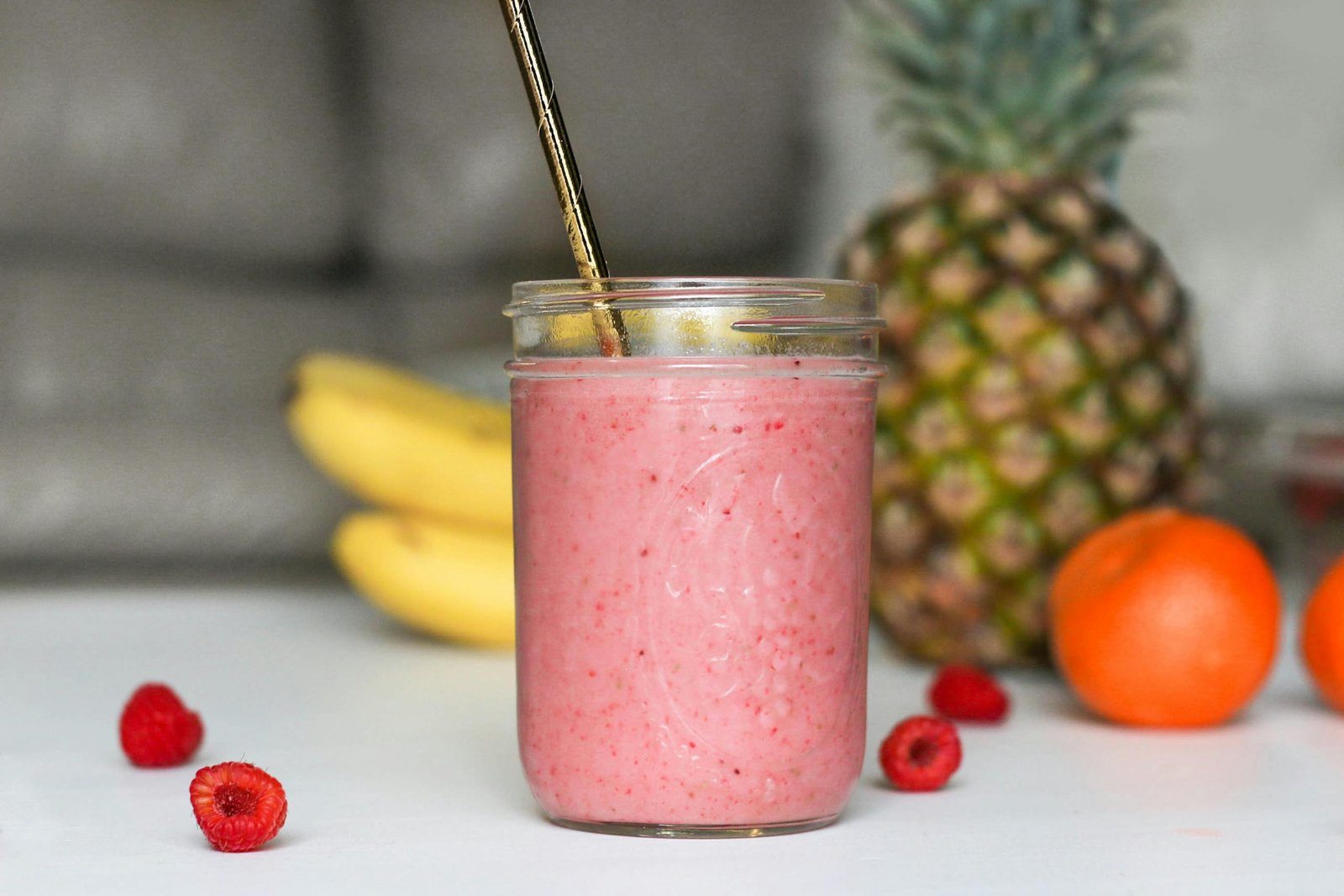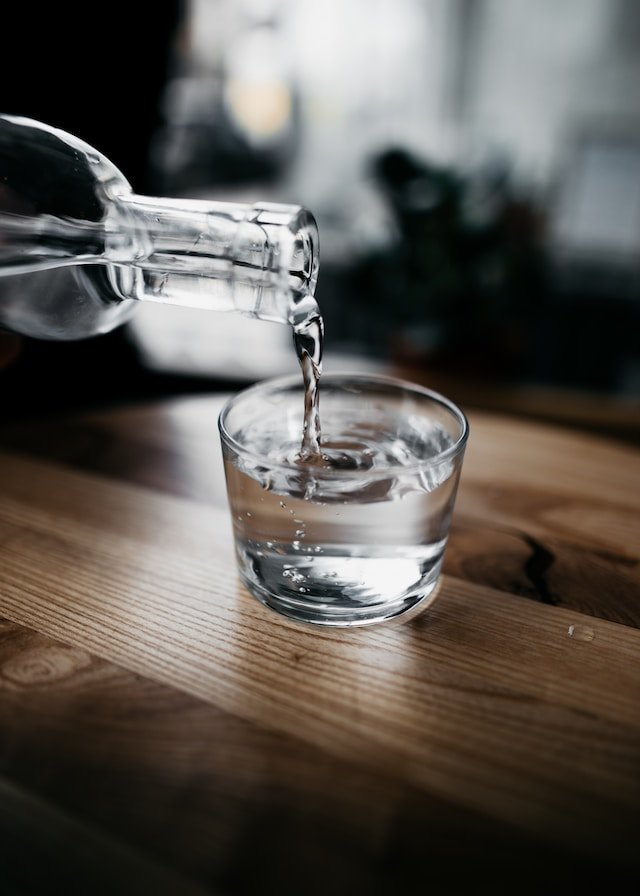How Water Helps Your Digestive System Function
There are some affiliate links below, but they are all products I highly recommend. For more info, view my disclosure here.
Feeling bloated and blah after eating? Before you pop the Tums, reach for a glass of water instead!
Proper hydration is the ultimate gut wellness hack. Water works wonders to keep your digestive system humming.
In this article, we dive deep into H2O’s digestive benefits. Learn how water breaks down nutrients, boosts absorption, and prevents clogs in your plumbing.
Discover how water enables digestive enzymes and flushes toxins for a healthy gut. Arm yourself with knowledge to ensure your digestion is working its best!
Optimize your water intake, and you’ll be flushed with benefits. Drink up to keep your digestive system refreshed and ready to rock!

The Importance of Water for Digestion
Drinking enough water is crucial for your digestive system to function properly. When you consume food, your body begins the process of breaking it down into smaller particles through digestion. Water plays a vital role in this process by aiding in the breakdown of food and the absorption of nutrients.
Water helps to soften food as it travels through your digestive system, making it easier for your body to break it down. It also helps in the production of saliva, which contains enzymes that kickstart the digestion process in your mouth. As the food moves from your mouth to your stomach, water helps to neutralize stomach acid, preventing indigestion and heartburn.
Furthermore, water is essential for the absorption of nutrients in your intestines. It helps to transport these nutrients throughout your body, ensuring that your cells receive the necessary fuel to function properly. Without enough water, your digestive system may struggle to break down food efficiently, leading to issues such as constipation and nutrient deficiencies.
In addition to aiding digestion, water also helps to prevent dehydration, which can have a detrimental effect on your digestive system. Dehydration can cause constipation and make it harder for your body to eliminate waste.
Water and the Breakdown of Food
When you consume enough fluids, it aids in the breakdown of food in your digestive system. Water plays a crucial role in the process of digestion by helping to soften and break down the food you eat. As soon as you take a bite, saliva in your mouth starts the digestion process. It contains enzymes that begin to break down carbohydrates, proteins, and fats.
However, for these enzymes to work effectively, they need a medium to carry out their functions. This is where water comes in. When you drink enough fluids, the water mixes with the food in your stomach and helps to break it down further. It also helps to keep your digestive system running smoothly by preventing constipation. Water acts as a lubricant, allowing food to move through your intestines more easily.
Additionally, it helps to dissolve nutrients from the food you eat, making it easier for your body to absorb and utilize them. So, make sure you stay hydrated and consume enough fluids to support the breakdown of food and maintain a healthy digestive system.
Hydration and Nutrient Absorption
To properly absorb nutrients, it’s important for you to stay hydrated. When you’re adequately hydrated, your digestive system functions optimally, allowing for efficient absorption of nutrients from the food you eat. Water plays a crucial role in this process by aiding in the breakdown of food and facilitating the movement of nutrients across the intestinal wall into the bloodstream.
When you consume food, your body begins the digestion process by breaking it down into smaller molecules. This is where water comes into play. It helps soften food, making it easier for your digestive enzymes to break it down further. Water also helps in the secretion of saliva, gastric juices, and digestive enzymes, which are essential for breaking down proteins, carbohydrates, and fats into smaller, absorbable components.
Furthermore, water acts as a carrier, transporting nutrients across the intestinal wall and into your bloodstream. Without adequate hydration, the absorption of nutrients can be compromised, leading to deficiencies and other health issues. Water ensures that nutrients are properly absorbed and utilized by your body, promoting overall health and well-being.
Water’s Role in Preventing Constipation
Staying adequately hydrated ensures that waste moves smoothly through your intestines and prevents constipation. When you don’t drink enough water, your body tries to compensate by absorbing water from your stool, making it harder and more difficult to pass. This can lead to constipation, which isn’t only uncomfortable but also affects your overall digestive health.
Water plays a crucial role in maintaining the proper functioning of your digestive system. It helps soften the stool, making it easier to pass through the intestines. Additionally, water helps to keep the muscles in your digestive tract flexible and supple, allowing for smooth and efficient movement of waste.
Drinking enough water throughout the day can also help prevent bloating and gas, which are common symptoms of constipation. When your body is adequately hydrated, it can effectively break down food and absorb nutrients, promoting a healthy digestive process.
To ensure that you stay properly hydrated, it’s recommended to drink at least eight 8-ounce glasses of water per day. You can also increase your water intake by consuming foods high in water content, such as fruits and vegetables. Additionally, limit your intake of dehydrating beverages like caffeine and alcohol, as they can contribute to constipation.
How Water Supports a Healthy Gut
Drinking enough water throughout the day ensures that waste moves smoothly through your intestines, preventing constipation and supporting a healthy gut. Water plays a vital role in maintaining a healthy digestive system.
It helps to keep the digestive tract lubricated, allowing food to pass through easily. When you drink enough water, it helps to soften the stool, making it easier to pass and reducing the risk of constipation.
Additionally, water helps to break down the food you eat, aiding in the digestion process. It helps to dissolve nutrients and deliver them to the cells in your body, ensuring that your gut receives the necessary nourishment.
Water also helps to flush out waste products and toxins from your body, keeping your gut clean and preventing the buildup of harmful substances. Inadequate water intake can lead to dehydration, which can cause digestive problems such as bloating, indigestion, and stomach ulcers.
Therefore, it’s important to drink enough water throughout the day to support a healthy gut and maintain proper digestive function.
The Connection Between Water and Digestive Enzymes
Ensuring you stay hydrated can enhance the effectiveness of digestive enzymes in breaking down food. When you consume food, your digestive system relies on digestive enzymes to break it down into smaller, more easily absorbable molecules. These enzymes play a crucial role in the digestion and absorption of nutrients.
However, without proper hydration, the efficiency of these enzymes can be compromised.
Water is essential for the production and secretion of digestive enzymes. It helps to maintain the optimal pH level in your stomach and intestines, which is necessary for the enzymes to function effectively. When you’re dehydrated, the concentration of digestive enzymes in your digestive system decreases, leading to a slower and less efficient breakdown of food.
Staying hydrated also helps to prevent constipation, a common digestive issue. When you don’t drink enough water, your body tries to compensate by absorbing more water from your stool, resulting in dry and hard stools. This makes it harder for your digestive system to eliminate waste, leading to constipation.
To ensure you stay hydrated and support the effectiveness of digestive enzymes, make it a habit to drink water throughout the day. Aim for at least eight glasses of water daily, and increase your intake if you’re physically active or in hot weather. Remember, maintaining proper hydration is essential for a healthy digestive system.
Water as a Natural Detoxifier for the Digestive System
When properly hydrated, you’ll notice improved detoxification of your digestive system. Drinking enough water is essential for ensuring that waste products are efficiently eliminated from your body. Water acts as a natural detoxifier by helping to flush out toxins and waste materials from your digestive tract. It aids in the digestion and absorption of nutrients, allowing your body to function optimally.
When you’re dehydrated, your digestive system may not work efficiently, leading to problems such as constipation, bloating, and indigestion. By drinking an adequate amount of water, you can help prevent these issues and promote healthy digestion.
Water also plays a crucial role in maintaining the balance of beneficial bacteria in your gut. These bacteria help break down food and absorb nutrients. When you’re properly hydrated, your gut microbiome can thrive, supporting a healthy digestive system.
In addition to aiding digestion and supporting the growth of beneficial bacteria, water helps to keep your bowel movements regular. It softens the stool, making it easier to pass and preventing constipation.
To reap the benefits of water for your digestive system, make sure to drink enough throughout the day. Aim for at least eight glasses of water, or about two liters, to keep your body hydrated and your digestive system functioning optimally.
Tips for Staying Hydrated for Optimal Digestive Function
To maintain optimal digestive function, it’s important to stay hydrated by drinking enough fluids throughout the day. Water plays a crucial role in digestion as it helps to break down food and absorb nutrients. When you’re dehydrated, your body can’t produce enough saliva or digestive juices, which can lead to problems like constipation and indigestion.
To stay properly hydrated, aim to drink at least eight cups of water per day. Carry a water bottle with you wherever you go, so you can easily access it and remind yourself to drink regularly. You can also incorporate other hydrating fluids such as herbal teas or infused water with fruits and vegetables.
Remember to listen to your body’s thirst cues and drink whenever you feel thirsty. Additionally, try to limit your intake of dehydrating beverages like caffeine and alcohol, as they can actually contribute to dehydration.
Staying hydrated isn’t only important for your digestive health, but also for your overall well-being. So, make it a priority to drink enough fluids throughout the day and keep your digestive system functioning optimally.







